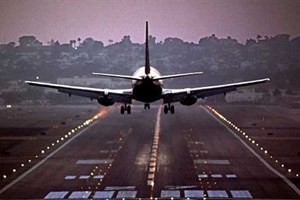The International Civil Aviation Organization, a United Nations body that sets guidelines and standards for the sector, has allayed concerns that a foreign-owned airline operating from India may have legal and procedural issues in obtaining seats under bilateral rights for flying abroad.
The air service agreements (ASAs) signed between any two countries usually mandate that airlines from either country have their substantial ownership and effective control (SOEC) vested with citizens of the particular country.
These ASAs are based on International Civil Aviation Organization (ICAO) template and even though they are not binding, most countries include it in their bilateral rights agreements. “It is up to the concerned states to negotiate and agree on what criteria or requirements they would apply for the designation and authorisation of their airlines to operate the agreed air services. Even for those air service agreements which contain a ‘nationality clause’, states have the discretionary right to decide if they would apply or waive it on a case-by-case basis,” ICAO told FE in an e-mailed response.
[related-post]
The possibility of such a situation arose after the government recently approved 100% foreign direct investment (FDI) into scheduled domestic carriers. This means that a future domestic airline could be completely owned by a foreign entity. However, the grey area regarding award of bilateral seats to such an airline once it fulfils the condition for flying abroad has continued to linger since the FDI policy was announced last month.
On the same issue, civil aviation secretary RN Choubey had earlier said: “We would look into the possibility of including a foreign-owned airline into the ambit of ASAs, preferably without violating International Civil Aviation Organization (ICAO) regulations. If that’s not possible, we will explore other option on case-by-case basis”.
Clarifying the issue further, ICAO said its guidance to states on the subject of air carrier ownership and control includes a range of possible criteria for use in their ASAs, or regulatory practices, concerning the designation and authorisation of airlines operating international air services.
It added that these criteria include the traditional ‘nationality clause’ used in many existing bilateral agreements, liberalised approaches such as the ‘principal place of business and effective regulatory control’, and the ‘community of interest’ criteria (ie allowing for the designation of an airline that belongs to a group of states). “It should be recognised that the ICAO guidance is ‘recommended’ in this instance (not legally binding), and as such states may choose an approach best suited to their specific situation,” it said.
In addition to the bilateral ASAs, ICAO said, governing international air services, some states do have national legislations or rules that are also applicable to the ownership and control of their national airlines, including those governing foreign inward investments. Again, to what extent foreign investment should be allowed in national airlines is a matter within the right of a sovereign state to decide according to its situation, national policy and interest. State practices have shown that such rules range from restrictive, to very open, it added.

